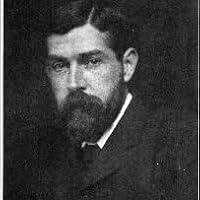
F.H. Bradley
Об авторе
F.H. Bradley was a prominent British philosopher known for his significant contributions to idealism and metaphysics. His work emphasized the importance of the whole over the parts, arguing that reality is a unified experience rather than a collection of isolated experiences. One of his most celebrated works, "Appearance and Reality," published in 1893, explores the distinction between how things appear to us and how they truly are, challenging conventional notions of perception and understanding. Bradley's philosophy sought to reconcile the subjective with the objective, making him a pivotal figure in the development of modern philosophical thought.
Throughout his career, Bradley influenced many contemporary and later philosophers with his ideas about the nature of reality and the relationship between thought and being. His writings delved into ethics, aesthetics, and the philosophy of religion, making a lasting impact on various fields of study. Bradley's deep engagement with the philosophical tradition, particularly through his critiques of empiricism and realism, positioned him as a key thinker in the landscape of British philosophy during the late 19th and early 20th centuries.